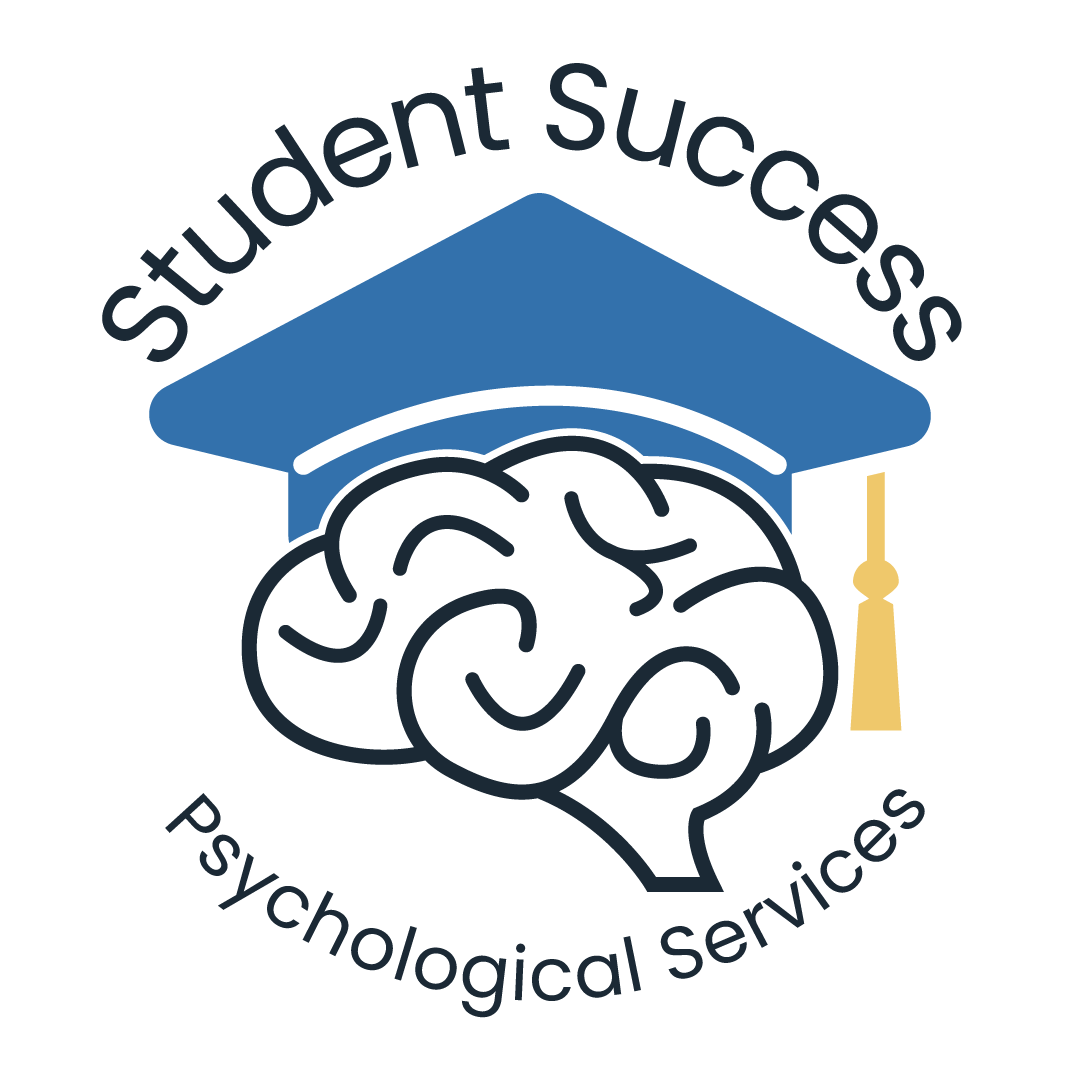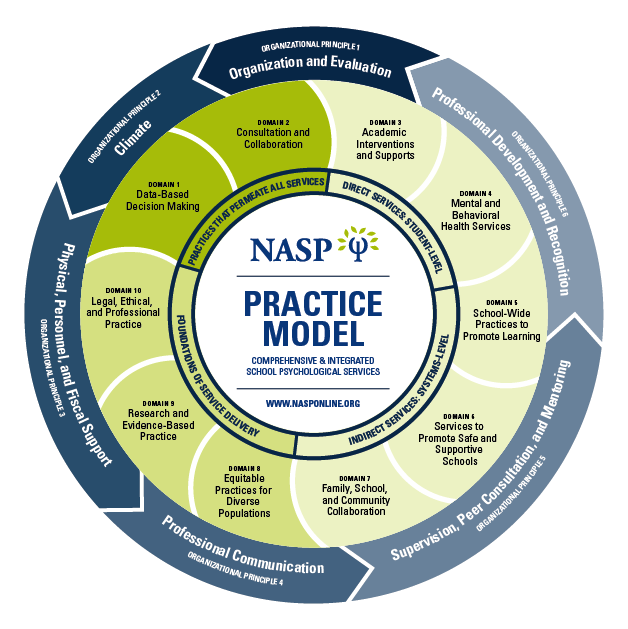Understanding the NASP Practice Model
When students face challenges at school, whether with learning, emotions, or behavior, school psychologists play an important role in helping them succeed. The NASP Practice Model, developed by the National Association of School Psychologists (NASP), provides a clear guide for how school psychologists deliver effective and comprehensive services that support every child’s learning and well-being.
This model helps schools create environments where all students can grow academically, socially, and emotionally. For parents, understanding the model makes it easier to see how school psychologists work, what services they provide, and how families can be active partners in their child’s progress.
What the NASP Practice Model Is
The NASP Practice Model outlines what school psychologists do and how schools can organize services to make those efforts most effective. It is built on two main parts:
Professional Practices describe the skills and services that school psychologists provide, including assessment, intervention, prevention, and collaboration.
Organizational Principles describe what schools need in place, such as reasonable caseloads, time for teamwork, and systems that support data-based decision making.
When both of these parts work together, schools can deliver strong, coordinated services that help students succeed.
Why the Model Matters for Families
The NASP Practice Model shows that school psychologists do much more than testing or identifying learning concerns. Their role includes helping schools strengthen instruction, address behavioral and emotional needs, and create positive, inclusive learning environments.
For families, this means that support for a child is part of a larger, coordinated system. Key parts of that system include:
Promoting learning and mental health for all students
Using data to make decisions and monitor progress
Partnering with teachers, administrators, and families
Preventing problems before they grow
Ensuring services are fair and culturally responsive
When schools follow the NASP Practice Model, student supports are proactive, research-based, and focused on meaningful improvement.
The Ten Domains of Practice
The NASP Practice Model includes ten areas that describe the full range of services school psychologists provide. These areas may sound technical, but they all connect to the everyday experiences of children and families in schools.
1) Data-Based Decision Making
School psychologists use data from observations, testing, and teacher input to understand each student’s strengths and needs.
2) Consultation and Collaboration
They work closely with teachers, administrators, and families to design and adjust plans that help students reach their goals.
3) Academic Interventions and Supports
They help identify learning barriers, recommend strategies that improve instruction, and support effective classroom practices.
4) Mental and Behavioral Health Services
School psychologists provide counseling, behavioral support, and crisis response, helping students manage emotions and build coping skills.
5) Schoolwide Practices to Promote Learning
They assist schools in developing programs that create positive climates and support success for all students.
6) Preventive and Responsive Services
They help schools prepare for potential challenges and respond effectively when issues occur.
7) Family–School Collaboration
They emphasize working together with parents and caregivers because students learn best when home and school support each other.
8) Diversity in Development and Learning
School psychologists ensure that culture, background, and individual differences are respected in every plan and service.
9) Research and Program Evaluation
They use research to guide their work and help schools measure how well programs are helping students.
10) Legal, Ethical, and Professional Practice
School psychologists follow professional and ethical standards that protect student rights and confidentiality.
The NASP Practice Model defines what high-quality school psychological services should include. It reminds schools and families that school psychologists do more than address immediate problems. They help build the systems that allow every student to learn, grow, and thrive. When parents understand this model, they can work more confidently with schools to ensure that their children receive the support they need to reach their full potential.
At Student Success Psychological Services, our work is guided by the same principles outlined in the NASP Practice Model. We believe in comprehensive, collaborative, and data-informed support that values the whole child. Whether your child needs help with learning, behavior, or emotional well-being, our goal is to partner with families and schools to create lasting positive change.
Resources:
National Association of School Psychologists

